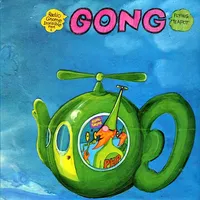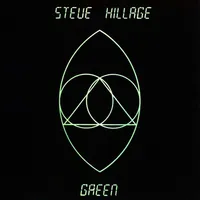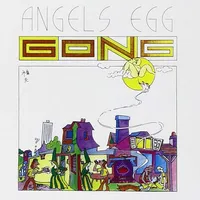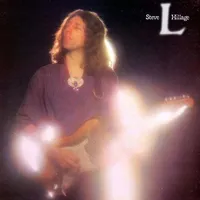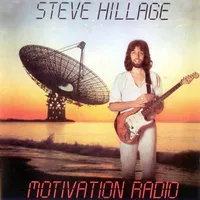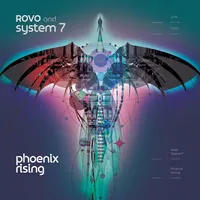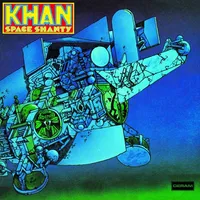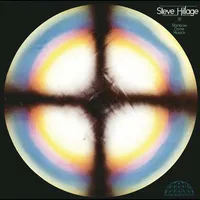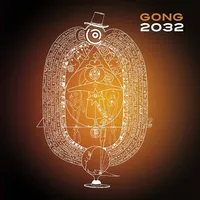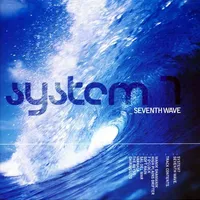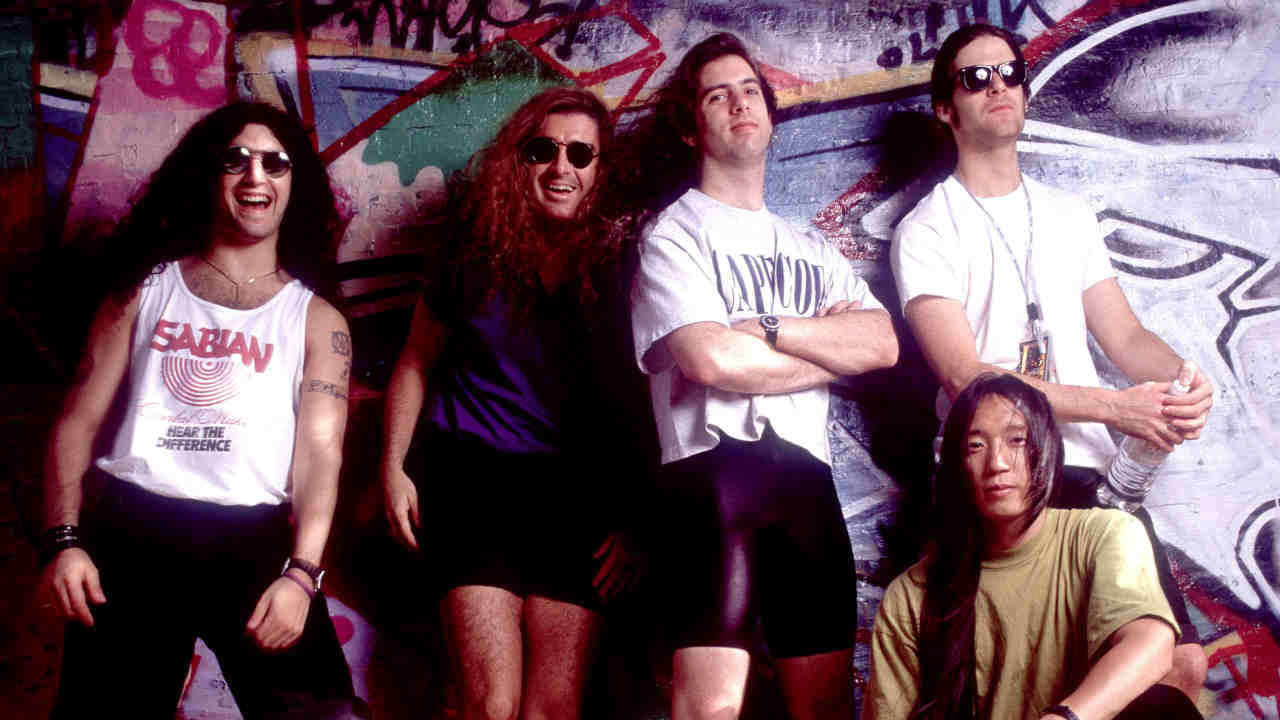The Steve Hillage albums you should definitely own
Guitarist and producer Steve Hillage is a true progressive visionary whose best albums cover a career as 70s prog hero and cult figure on the underground dance scene

When lists are compiled of true guitar heroes, hardly anyone spares a thought for Steve Hillage. And yet in a career that began more than half a century ago he has been one of the most consistently individual guitarists around.
Hillage once said of himself: “I hate repeating things. That’s why I’ve worked with so many different musicians and in so many different styles.” And he has certainly been a man of his word.
Inevitably most people will know him either through his solo career, which spans 40 years and more than a dozen albums, or his association with Gong, which began in 1973 and has continued intermittently ever since. But he has also worked as musician and occasional producer with a raft of other quality artists including Kevin Ayers, Dave Stewart (the Egg/Hatfields one, not the one-time Eurythmic), Mike Oldfield, Simple Minds, It Bites, Tony Banks and even Sham 69 (with whom he played live at the Reading festival in 1978).
Hillage’s style has always been experimental, mixing up a rich tone that owes much to the psychedelic approach born out of the Canterbury scene in the late 60s, in which he was heavily involved, with a more ambient mood and methodology. He has an gift for balancing technique with instinct, and that has made him a unique performer both in the studio and live.
Hillage’s first band was psychedelic bluesers Uriel, whom he joined in 1968 while still at school. He made his recording debut in 1969, with the self-titled release from Arzachel (credited with the pseudonym Simon Sasparella).
The 70s was certainly his most productive decade, as a member of both Khan and Gong, as well as a fertile solo career. He also played with Mike Oldfield on a landmark live performance of Tubular Bells in 1973, and briefly toured with Kevin Ayers in the band Decadence.
More recently, he and long-time creative and personal partner Miquette Giraudy started System 7, an experimental ambient dance group, which has made him a cult figure on the underground dance scene. And he produced Algerian folk music show 1,2,3 Soleils in the late 1990s. At 2013's Progressive Music Awards, Hillage was presented with the Visionary Award. That sums him up best.

Gong - Flying Teapot (Virgin, 1973)
Regarded by many as the most whimsical of Gong’s eclectic catalogue, this was Hillage’s studio debut with the band. And he had an immediate impact. Despite the eccentric nature of the music, Hillage gave it a psychedelic toughness that brought a cohesive structure to its six tracks.
Partly based on a philosophical treatise by Bertrand Russell, it was also the first part of the celebrated Radio Gnome Invisible trilogy; there are so many brilliant ideas coursing through Zero The Hero And The Witch’s Spell, plus the title track that it takes on a life of its own. Among the great albums of the early 1970s.
Steve Hillage - Green (Virgin, 1978)
Hillage’s fourth solo album remains his best. It was produced by Pink Floyd’s Nick Mason, who helped to bring out some quite astonishing guitar performances. At a time when punk was raging hard, with Green Hillage calmly proved that not only was he a virtuoso master of the guitar, but also that he could bring out the distinctive colour of any composition, by knowing when not to play.
Tracks like Sea Nature, Musik Of The Trees and The Glorious Om Riff are spellbinding by the way Hillage envisages music in three dimensions. Overall the album was a magnificent fruition of his dramatic purpose.
Gong - Angel's Egg (Virgin, 1973)
The second part of the acclaimed Radio Gnome trilogy, on the original vinyl version this was split into the Yin and Yang sides. Aside from some utterly bonkers musical ideas, the band show off their peculiar sense of humour, as on Sold To The Highest Buddha and Flute Salad. But these are more than cunning plays on words; Gong show off a breathtaking array of dexterity, with Hillage right at the fore.
Just to show their quirkiness, each member of the band is credited under a rather ludicrous pseudonym; Hillage, for example, is Sub. Capt. Hillage. One of the best Gong albums.
Steve Hillage - L (Virgin, 1976)
The second solo album from Hillage, and the first on which he really found his range and style. It helped having Todd Rundgren on board as the producer, and many of the musicians involved were from his band Utopia.
Half the songs here are covers. But the unshakeably original Hillage takes the likes of Hurdy Gurdy Man and It’s All Too Much and invests them with his own exposition. Hillage’s original songs fit neatly alongside, and overall there’s a joyous sense of freedom which comes from Hillage being allowed to indulge every aspect of his talent and musical spectrum.
Steve Hillage - Motivation Radio (Virgin, 1977)
Hillage’s third solo album sees him extensively employing the synthesiser for the first time, as well as a guitar technique that gives much of the music here a mystical atmosphere.
In some respects the experimental nature of Motivation Radio presaged what Hillage would do more than a decade later with System 7, and the way in which he used synth sounds on Light In The Sky and Radio opened up his horizons to take in new influences. Although not a concept album, this one did have a trademark sound that was carried throughout its nine tracks.
System 7 with Rovo - Phoenix Rising (G-Wave, 2013)
When System 7’s ambient dance style careered into Japanese band Rovo’s more psychedelically jam-based approach, the result could have been catastrophic. As it turned out, it was inspired. Hillage’s restive guitar work not only fits sublimely into the overall sound, it’s arguably also the guiding force. And he revels in the freedom he’s afforded throughout.
This is Hillage reconnecting to the progressive nature that has always lurked in his best recordings, and the album sounds like nothing else in his catalogue. Fiercely undefinable.
Khan - Space Shanty (Eclectic Disc, 1972)
Along with Hillage, also featured in this short-lived Canterbury band was keyboard player Dave Stewart, who would go on to make his name with Hatfield And The North and Bruford. Hillage and Stewart combine unerringly. The former’s enigmatic, melodic playing already had maturity, while Stewart’s fuzzed tone imbued everything with a sense of British psychedelia.
While there’s no doubting the high quality of the music, this is very much a work in progress. The inventiveness of the young band showcased musicians who were gradually finding their own niche in the psychedelic genre. A pity they lasted just one album.
Steve Hillage - Rainbow Dome Musick (Virgin, 1979)
Just two tracks here, each taking up a whole side on the original vinyl release. There are those who see this as a start of ‘new age’ music, and it’s easy to see why; the gentility and texture of the music has the feel which would become associated with this genre. In other words, it has a peaceful fluency.
The music was commissioned for the Festival Of Mind, Body And Spirit in London. What Hillage and Miquette Giraudy set out to do was create a musical experience that went against the commercial grain of that event. The result is equally comfortable upfront or as soothing background music.
After 35 years, Gong returned to the Radio Gnome mythos for a record that drew heavily on the original trio of albums linked by the concept in the early 70s, yet it also proved that Gong were far from living in the past. Hillage produced and played on it, and gave everything a contemporary sheen, as well as ensuring the psychedelic nuances which had come to define Gong remained intact.
Set in 2032, the story is about the pot-head pixies and octave doctors from the Invisible Planet Gong contacting Earth. There’s enough weirdness to satisfy old Gong devotees, while never alienating newcomers.
And one to avoid...
You can trust Louder
System 7 - Seventh Wave (A Wave, 2001)
The trouble with being experimental is that sometimes it can go hideously wrong. And that’s what happened here. Some System 7 albums triumph because Hillage and Giraudy, the main protagonists, were unstoppable. This one just sinks into a morass of half-baked and ill-conceived notions, which ran through house, techno, dance and progressive ideas, but never pulled them together into anything even resembling a coherent structure.
The result is blunderingly loose and rather pointless. If those involved believed they could bluster their way through the absence of ideas, they were wrong.
Sign up below to get the latest from Classic Rock, plus exclusive special offers, direct to your inbox!
Malcolm Dome had an illustrious and celebrated career which stretched back to working for Record Mirror magazine in the late 70s and Metal Fury in the early 80s before joining Kerrang! at its launch in 1981. His first book, Encyclopedia Metallica, published in 1981, may have been the inspiration for the name of a certain band formed that same year. Dome is also credited with inventing the term "thrash metal" while writing about the Anthrax song Metal Thrashing Mad in 1984. With the launch of Classic Rock magazine in 1998 he became involved with that title, sister magazine Metal Hammer, and was a contributor to Prog magazine since its inception in 2009. He died in 2021.
